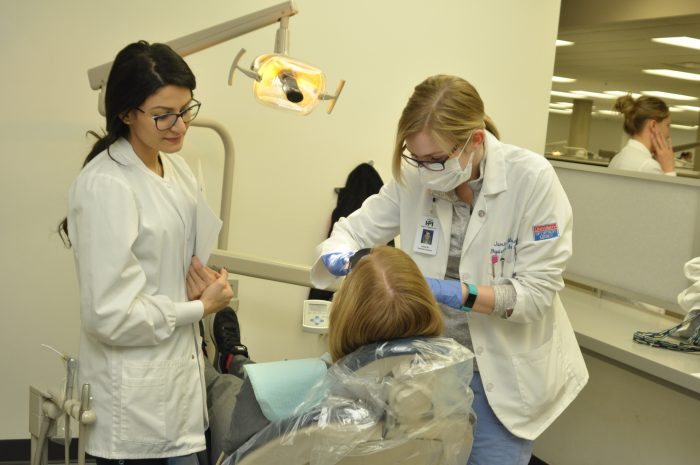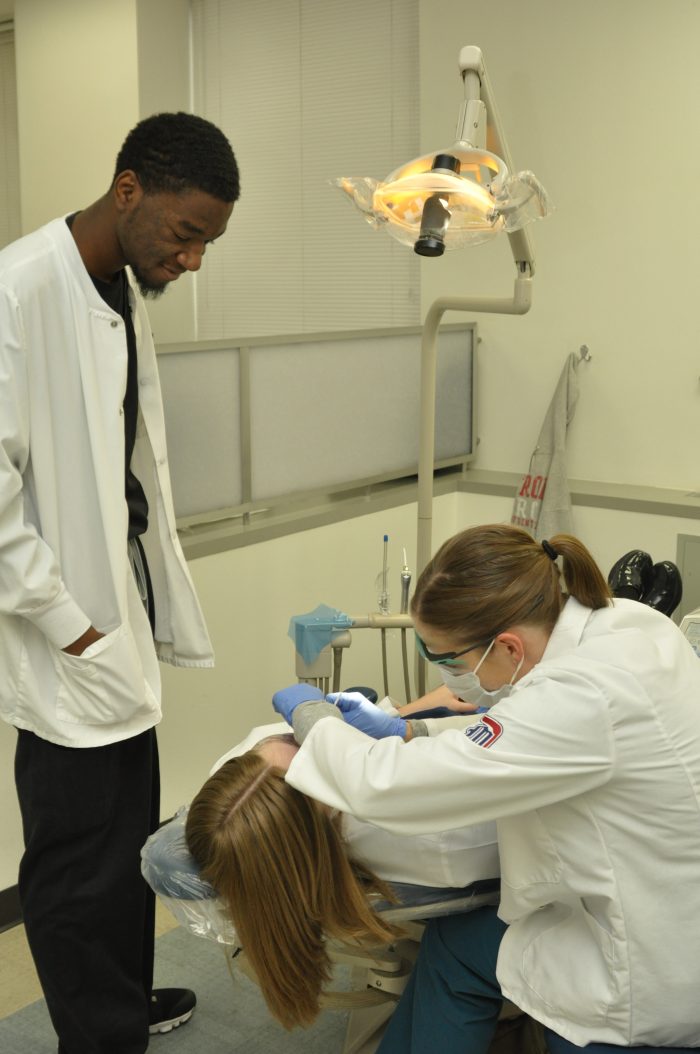On Wednesday, November 1, more than 90 students were involved in Interprofessional Education (IPE) activities, a collaboration between second-year Dental Hygiene (DH2) students, third-year Dental students (DS3) and students from the College of Health Professions‘ Physician Assistants (PA) program.
IPE activities allow students of different healthcare professions to learn about each other’s role and scope of practice. In addition, students develop, and build upon, the competency skill sets of values/ethics for interprofessional practice, roles/responsibilities, communication, and teamwork.
During the morning, DH2 and PA students were provided with a short lecture expressing the importance of IPE, why each group of students needs to learn from counterparts, and how as a healthcare team they will work towards optimum health for their patients.

After the overview, DH2 and PA students engaged in hands-on activities. DH2 students provided instruction about fluoride varnish and guided PA students through the process of applying the varnish to the teeth.

At lunchtime, DS3s joined DH2 and PA students to collaborate on case studies involving melanoma. Each group had a table facilitator ranging in expertise, including dentists, physician assistants, physicians, dental hygienists, and a PhD anatomist.
Table facilitators agreed that all students appeared to have respect, confidence, and trust in one another. As a result of discussions and patient case activity, students understood one another’s unique roles and responsibilities.
Some reflection quotes received from the healthcare professional students included:
- “I think working as a team would greatly impact my patient’s outcomes as everyone can provide their own educational experiences and expertise to the patient’s case. “
- “Working as healthcare team would benefit the patient the most. They would get the best possible outcome from this.”
- “Interprofessional communication is very important in managing a patient’s oral and systemic health. Often times, systemic disease can present itself in the oral cavity. Communication between healthcare professionals and dentists can facilitate optimal care and precise treatment.”
